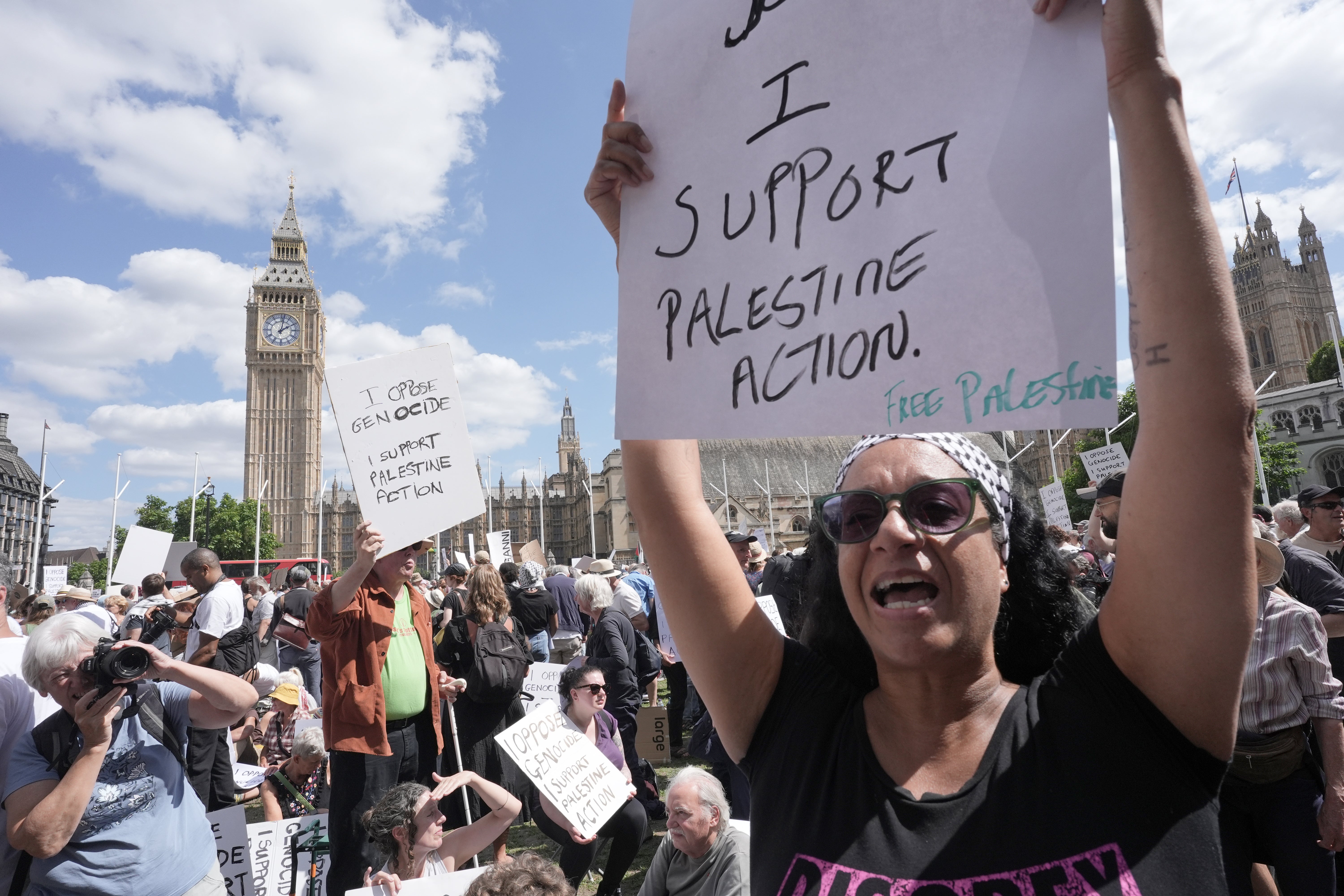A Labour peer has warned that the government’s ban on Palestine Action is at risk of becoming an “I am Spartacus” moment, suggesting the decision to proscribe the group as a terrorist organisation was disproportionate.
Shami Chakrabarti, a former shadow attorney general and civil liberties campaigner, urged the government to “think again”, warning that the group’s ban may lead to more people, not fewer, taking to the streets to support it.
She said her concerns are “greater now even than they were before” after more than 500 people were arrested over the weekend, demonstrating in support of the group.

An "I Am Spartacus" moment – from the 1960 film, Spartacus - refers to a situation where a group of people collectively claim to be one person, often in solidarity or defiance, to protect that individual or to confuse an authority figure.
The Metropolitan Police confirmed on Sunday that 532 arrests were made, 522 for displaying an item in support of a proscribed organisation at the march in central London over the weekend.
Asked whether the government had got it wrong on the issue, Baroness Chakrabarti told BBC Radio 4’s Today programme: “I'm afraid that my concerns are greater now even than they were before. This is in danger of becoming a sort of ‘I am Spartacus’ moment where more people, not fewer people, are taking to the streets.”
She added: “There are blurred lines now… some people are, as always, protesting about the horrific events they're watching unfold in Gaza, but others think they're standing up for civil liberties because this ban was disproportionate.”
The Labour peer warned that “even criminal damage is not terrorism”.
“Spraying paint on airplanes, which is a serious criminal damage, is not the same as being the IRA or al Qaeda or a group that actually wants to blow people up.
“And so we've got more people taking to the streets, a bigger headache for the police. Frankly, I'm very sympathetic to the police on this issue. I think it may be time to think again.”
It comes just days after she told The Independent that the “proscription of Palestine Action is in danger of becoming a mistake of poll tax proportions” – a reference to Margaret Thatcher’s unpopular policy that triggered civil disobedience and riots.
The group hit the headlines earlier this year when four members were accused of causing around £7m worth of damage to aircraft at RAF Brize Norton.
The mass detention of protesters on Saturday is thought to be the highest number of arrests made by the Metropolitan Police in a single protest event since the poll tax riot of 31 March 1990.
Earlier this week, MPs from across the political divide warned of an excessive use of counterterrorism powers that was riding roughshod over the right to peaceful protest, after it emerged that many of those held were aged over 60.
Meanwhile, civil liberties groups, including Amnesty and Libert,y said the arrests were “disproportionate to the point of absurdity” and that the government’s terrorism laws were a threat to freedom of expression.
Former Labour cabinet minister Peter Hain described the mass arrests as “madness”, saying Palestine Action was not “equivalent to real terrorist groups like al-Qaeda or Islamic State”.
Lord Hain, who led the anti-apartheid movement and the Anti-Nazi League in Britain during the 1970s and 1980s, went on to warn that the ban will “end in tears for the government”.

“We are seeing retired magistrates, retired and serving doctors and all sorts of people being arrested and now effectively being equated with terrorists such as al-Qaida, which is absolutely wrong”, he said.
“It’s going to get worse [for the government] because I don’t see people from that ‘middle Britain’ background who have joined these protests in such large numbers to suddenly decide that all is OK.”
But home secretary Yvette Cooper defended the police and suggested those who were arrested may not “know the full nature of this organisation”.
After the arrests, Downing Street defended the move to ban the group, saying it was “violent”, had committed “significant injury” as well as criminal damage, and that the Joint Terrorism Analysis Centre had found the organisation had carried out three separate acts of terrorism.
“We’ve said that many people may not yet know the reality of this organisation, but the assessments are very clear: this is a violent organisation that has committed violence, significant injury and extensive criminal damage,” Sir Keir Starmer’s spokesman said on Monday.
Facial recognition technology not about ‘total surveillance society’ – minister
Despite all our progress, poverty in the UK is worse than 50 years ago
Government urges households to check if they can save £150 on energy bills
‘Complete mess’: Readers slam Badenoch’s ‘migrant camps’ proposal







